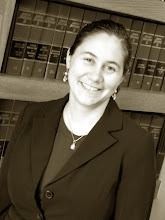
FAQ Part 2:
3. What debts are not dischargeable under Chapter 7?
All debts of any kind or amount, including out-of-state debts, are dischargeable under Chapter 7 except the debts listed below. The following is a list of the most common debts that are not dischargeable under Chapter 7:
* Most tax debts and debts that were incurred to pay federal tax debts;
* Debts for obtaining money, property, services, or credit by means of false pretenses, fraud, or a false financial statement, if the creditor files a complaint in the case (included here are debts for luxury goods or services and debts for cash advances made within 60 days before the case is filed);
* Debts not listed on the Debtor's Chapter 7 forms, unless the creditor knew of the case in time to file a claim;
* Debts for fraud, embezzlement, or larceny, if the creditor files a complaint in the case;
* Debts for alimony, maintenance, or support and, if the creditor files a complaint in the case, certain other divorce-related debts including property settlement debts;
* Debts for intentional or malicious injury to the person or property of another if the creditor files a complaint in the case;
* Debts for certain fines or penalties;
* Debts for educational benefits and student loans, unless a Court finds that not discharging the debt would impose an undue hardship on the Debtor and his or her dependants;
* Debts for personal injury or death caused by the Debtor's operation of a motor vehicle while intoxicated;
* Debts that were or could have been listed in a previous bankruptcy case of the Debtor in which the Debtor did not receive a discharge.
4. What persons are not eligible for a Chapter 7 discharge?
The following persons are not eligible for a Chapter 7 discharge:
* A person who has been granted a discharge in a Chapter 7 case filed within the last eight years;
* A person who has been granted a discharge in a Chapter 13 case filed within the last six years, unless 70 percent or more of the unsecured claims were paid off in the Chapter 13 case;
* A person who files a waiver of discharge that is approved by the Court in a Chapter 7 case;
* A person who conceals, transfers, or destroys his or her property with the intent to defraud his or her creditors or the Trustee in the Chapter 7 case;
* A person who conceals, destroys, or falsifies records of his or her financial condition or business transactions;
* A person who makes false statements or claims in the Chapter 7 case, or who withholds recorded information from a Trustee;
* A person who fails to satisfactorily explain any loss or deficiency of his or her income;
* A person who refuses to answer questions or obey orders of the Bankruptcy Court, either in his or her bankruptcy case or in the bankruptcy case of a relative, business associate, or corporation with which he or she is associated.
.....Neil S Shankman, Attorney, Lewiston, Maine







No comments:
Post a Comment